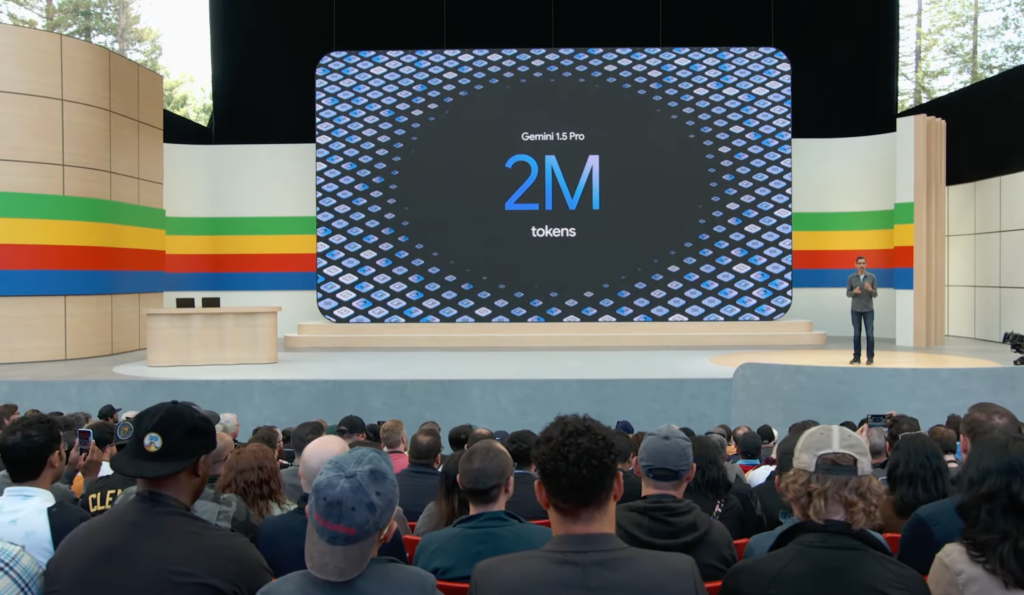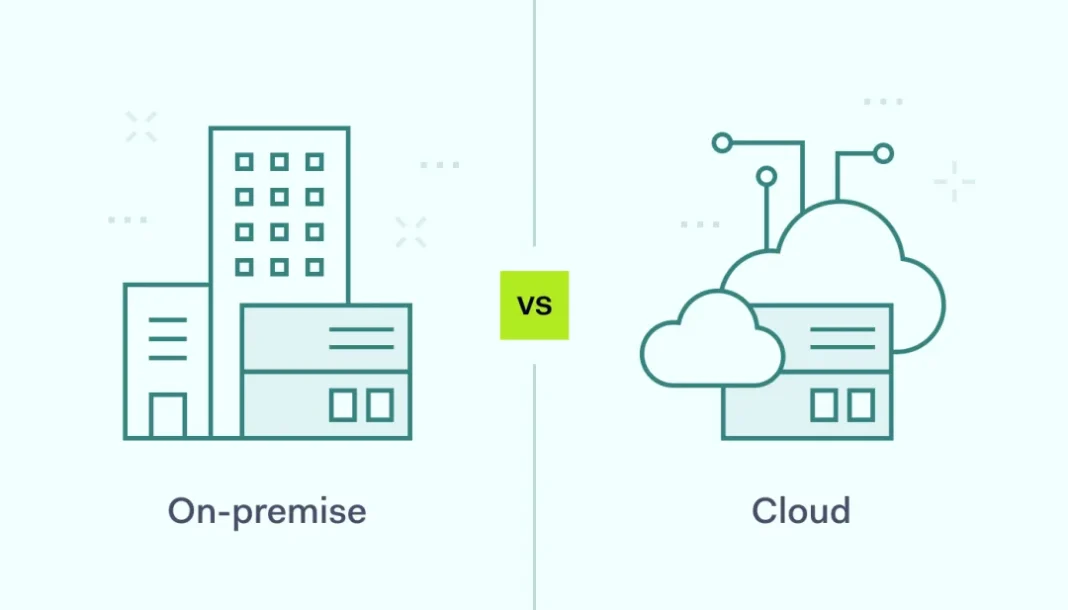Google I/O 2024 was an impressive showcase of how Google continues to push the envelope with artificial intelligence. This year’s event introduced significant advancements across multiple services and platforms, demonstrating Google’s commitment to an AI-first future. Below, I try and summarize the event into the key announcements and what they mean for users and developers alike, so you don’t’ have to boggle yourself.
1. Gemini AI Advancements: Next-Gen AI Capabilities
Gemini 1.5 Pro:
- Enhanced Processing Power: The Gemini 1.5 Pro model has doubled its processing capacity, now capable of handling up to 2 million tokens. This enables it to analyze extensive documents, large codebases, videos, and audio recordings, making it the most powerful commercially available AI model.

- Real-World Applications: This increased capacity allows for more detailed and complex AI tasks, such as in-depth document analysis and advanced multimedia processing, which can greatly benefit businesses and developers needing to manage large volumes of data.
Gemini Nano:
- On-Device AI: Gemini Nano, the smallest model in the Gemini series, will be integrated into the Chrome desktop client. Starting with Chrome 126, this integration will allow developers to utilize powerful AI capabilities directly on users’ devices, enhancing performance and privacy by processing data locally.
- Practical Use Cases: An example of this is the “help me write” tool in Gmail, where Gemini Nano will assist in drafting and refining emails directly within the browser, providing a seamless and responsive user experience.
2. AI Integration Across Google Services
Gmail Enhancements:
- Smart Email Management: With Gemini AI, Gmail is set to revolutionize how users handle their emails. The AI will assist in searching, summarizing, and drafting emails. More advanced features include processing e-commerce returns by locating receipts and filling out return forms, significantly reducing the manual effort required from users.
Google Photos:
- Ask Photos: The new AI-driven “Ask Photos” feature will allow users to perform natural language searches within their photo collections. Instead of manually tagging or searching for specific terms, users can describe what they are looking for in everyday language, and the AI will understand and retrieve the relevant photos.

- Example Usage: For instance, a user could search for “photos from last summer’s beach trip with friends,” and the AI would compile all relevant images, enhancing the photo browsing experience by making it more intuitive and user-friendly.
YouTube Educational Tools:
- Interactive Learning: AI-generated quizzes are being introduced to educational videos on YouTube. This feature allows viewers to ask questions and take quizzes related to the video content, making the learning process more interactive and engaging. This is particularly useful for lengthy educational videos, such as university lectures, where the AI can handle long-context queries effectively.
3. Enhancements for Android and Device Security
Scam Detection:

- Real-Time Protection: A new feature in Android will use Gemini Nano to detect scams during phone calls by analyzing conversation patterns in real-time. The AI will recognize typical scam tactics, such as unsolicited requests for personal information or payments via gift cards, and alert users with a notification if a scam is detected. We have an upcoming post about the privacy implications on this. Be on the lookout for this,
- User Safety: This enhancement aims to protect vulnerable users by providing immediate warnings during suspicious calls, thereby reducing the risk of falling victim to phone scams.
4. Google Play Improvements

Enhanced Developer Tools:
- Google Play SDK Console and Play Integrity API: Updates to these tools will provide developers with better resources for building and maintaining secure and efficient apps. These enhancements will help developers monitor and improve their apps’ performance and security, ensuring a better user experience.
Engage SDK:
- Immersive User Experiences: The new Engage SDK allows app makers to present their content in a full-screen, immersive format personalized to each user. This tool will enable developers to create more engaging and visually appealing apps, though this feature is currently not directly visible to end-users.
- Future Potential: This SDK could revolutionize app interfaces, making interactions more dynamic and tailored to individual user preferences, potentially increasing user engagement and satisfaction.
5. Gemini Live: Interactive AI Experiences
Voice Interactions:
- Dynamic Conversations: Gemini Live introduces a new way for users to interact with AI through voice conversations on their smartphones. This feature allows users to engage in multi-turn dialogues, ask clarifying questions, and receive responses that adapt to their speech patterns in real-time.
- Contextual Awareness: Gemini Live can also understand and respond to users’ surroundings through photos or video captured by their smartphone cameras. This contextual awareness allows for more relevant and accurate responses, enhancing the overall user experience. The privacy implications for this are also endless. Keep an eye for our upcoming post on this.
Conclusion
Honestly Google I/O 2024 has set a new benchmark for AI integration across various platforms and services. From the powerful capabilities of the Gemini AI models to the practical applications in Gmail, Google Photos, and YouTube, Google is leading the way in making AI more accessible and useful. These innovations promise to simplify everyday tasks, enhance security, and create more engaging user experiences, paving the way for a future where AI is seamlessly integrated into our daily lives, but also pose a privacy concern.
As these features begin to roll out, users and developers alike can look forward to a more intelligent and interactive digital ecosystem. Stay tuned for further updates as these technologies continue to evolve and transform the way we interact with the digital world.



